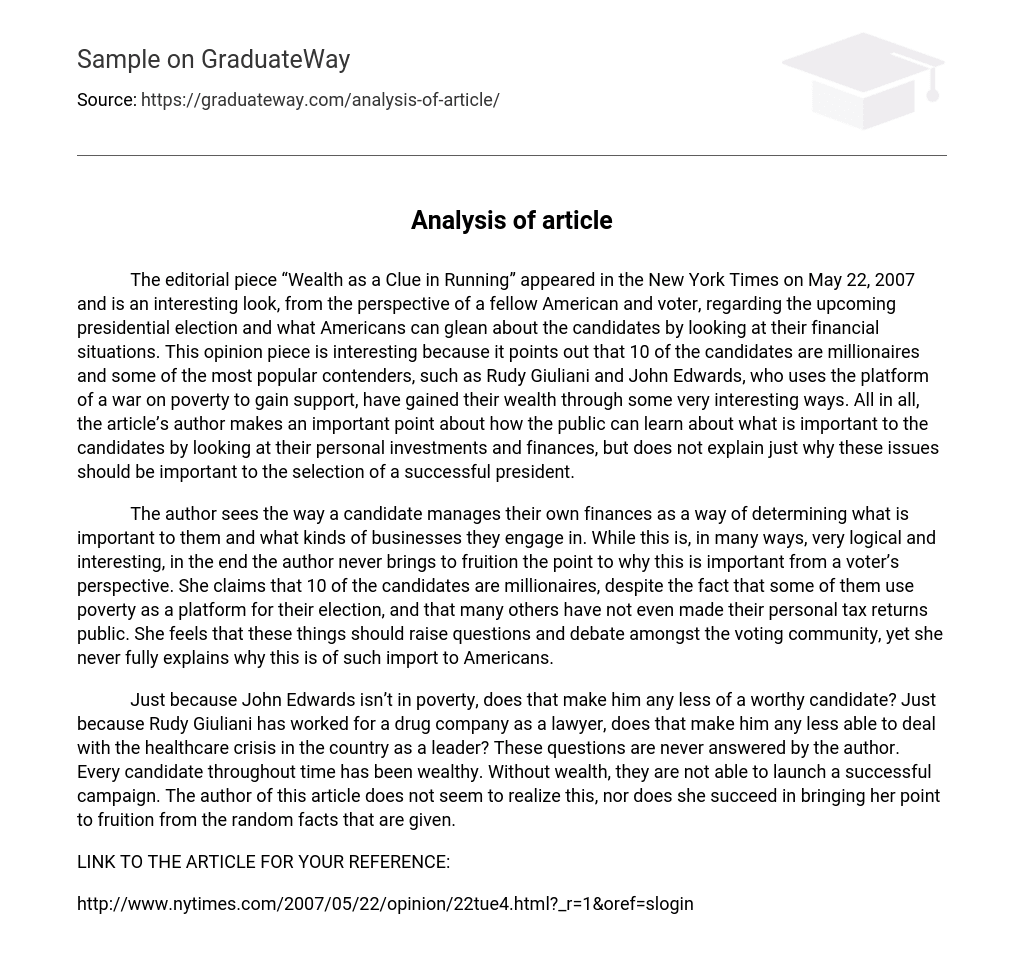The editorial piece “Wealth as a Clue in Running” appeared in the New York Times on May 22, 2007 and is an interesting look, from the perspective of a fellow American and voter, regarding the upcoming presidential election and what Americans can glean about the candidates by looking at their financial situations. This opinion piece is interesting because it points out that 10 of the candidates are millionaires and some of the most popular contenders, such as Rudy Giuliani and John Edwards, who uses the platform of a war on poverty to gain support, have gained their wealth through some very interesting ways. All in all, the article’s author makes an important point about how the public can learn about what is important to the candidates by looking at their personal investments and finances, but does not explain just why these issues should be important to the selection of a successful president.
The author sees the way a candidate manages their own finances as a way of determining what is important to them and what kinds of businesses they engage in. While this is, in many ways, very logical and interesting, in the end the author never brings to fruition the point to why this is important from a voter’s perspective. She claims that 10 of the candidates are millionaires, despite the fact that some of them use poverty as a platform for their election, and that many others have not even made their personal tax returns public. She feels that these things should raise questions and debate amongst the voting community, yet she never fully explains why this is of such import to Americans.
Just because John Edwards isn’t in poverty, does that make him any less of a worthy candidate? Just because Rudy Giuliani has worked for a drug company as a lawyer, does that make him any less able to deal with the healthcare crisis in the country as a leader? These questions are never answered by the author. Every candidate throughout time has been wealthy. Without wealth, they are not able to launch a successful campaign. The author of this article does not seem to realize this, nor does she succeed in bringing her point to fruition from the random facts that are given.





